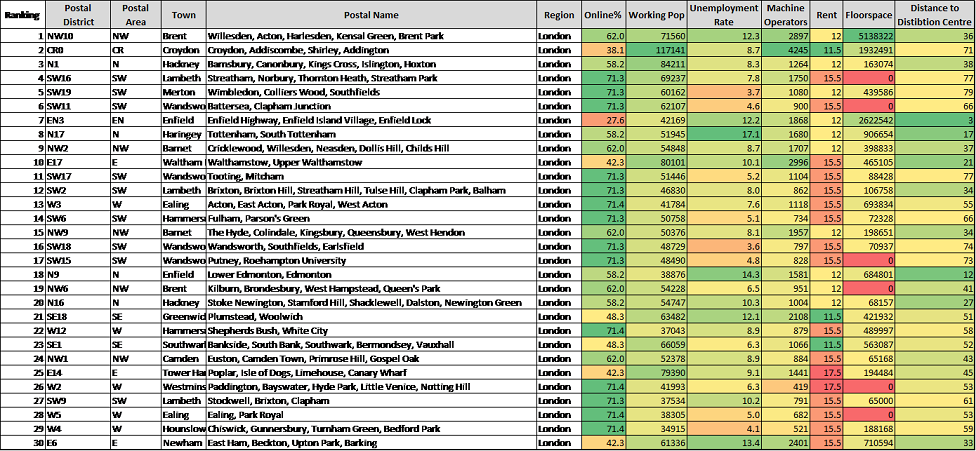Urban logistics: Focus on Greater London
Ideally, the best locations for industrial buildings would be near to where online shoppers live and work. However, this doesn’t always appear to be the case, especially for London. In this extract of the Future Gazing: Logistics – The Last Mile report, we take a look at the complexities of Greater London’s urban logistics
1 minute to read
Words: Dewi Spijkerman, Senior Geospatial Analyst
London remains a paradox. It is both the location with the highest consumer demand/online shopping propensity, but is witnessing the fastest decline in available floorspace.
Finding the holy grail of urban logistics under increasingly high customer expectations is a major challenge.
Using our Model to zoom in on London specifically helps identify the most favourable locations currently, as well the opportunity to look at potential alternative scenarios and planning applications.
Top 30 Greater London Hotspots
Our Top 30 most favourable London urban logistics locations are headed by Brent and Croydon, but for different reasons.

Sources: ONS, PMA, CACI, Knight Frank
The area of Brent, Acton and Kensal Green is desirable due to levels of available floorspace, high unemployment and access to high volumes online shoppers. Croydon ranks highly because of its large and specialised labour force and reasonably affordable rents for such a dense urban area.
Effective policies and planning could stimulate industrial development in highly desirable locations, or use the information to change one or more of the inputs to favour local conditions.
Although varying in level of difficulty, all circumstances can be influenced by policy and planning decisions. For example, creating new, fitted-out urban logistics spaces or large distribution centres near urban areas will change accessibility and availability, and these channels may influence rental values.
Demographics might be harder to change, but can be influenced by housing developments and specialised skill training.
It is clear, however, that due the changing nature of consumer behaviour, the industrial and logistics sector can no longer be hidden on remote industrial parks. Instead, it plays an important role in the holistic approach of creating smart cities of the future.
Read the full report here: Future Gazing: Logistics – The Last Mile